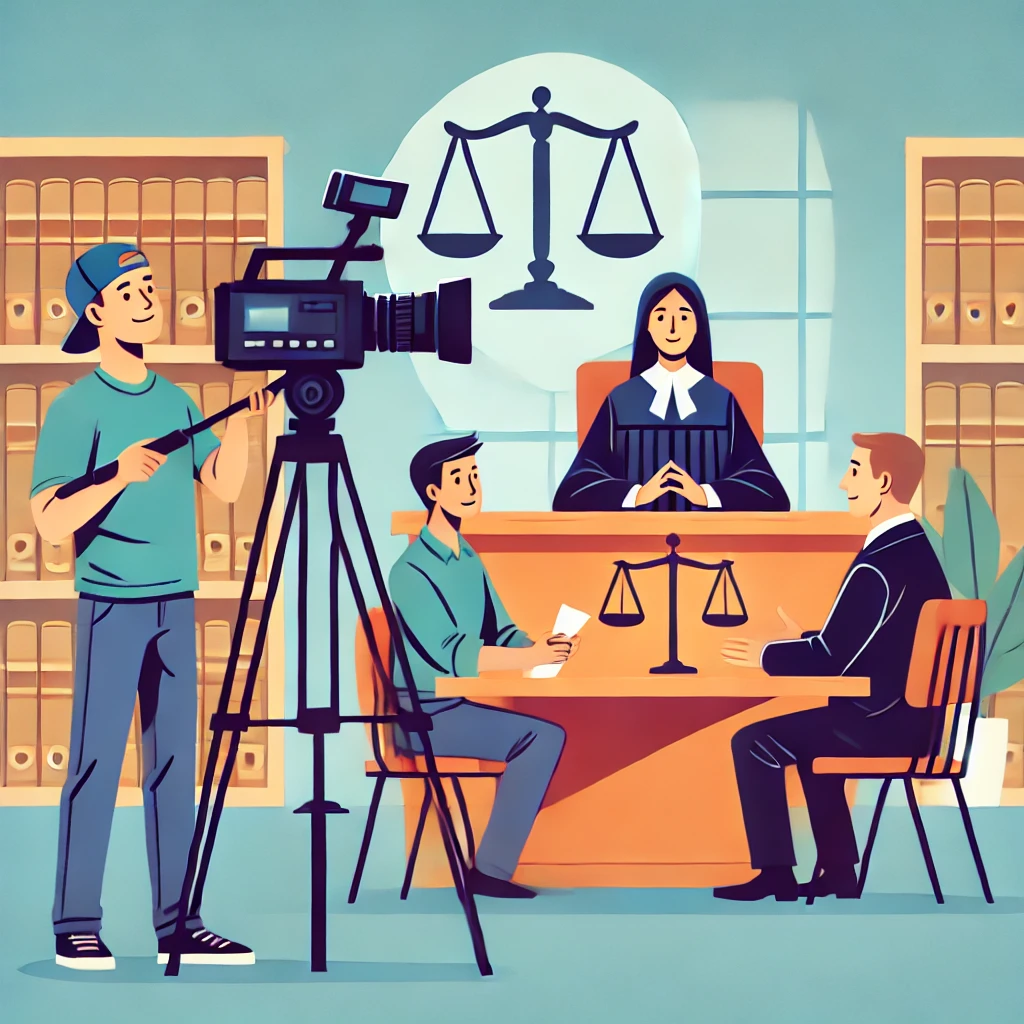Comprehensive Legal Videography for Courtroom Evidence.
Comprehensive Legal Videography for Courtroom Evidence.
Blog Article
The Role of Legal Videography in Depositions and Trials
Lawful videography has actually arised as a crucial device in both depositions and tests, offering a diverse method to documenting witness testimonies. As lawful specialists progressively acknowledge its value, it prompts a much deeper exam of exactly how these visual records can affect juror assumptions and test outcomes.
Importance of Lawful Videography
Lawful videography plays an essential role in the documentation and discussion of depositions and trials. This specialized area integrates technical abilities with lawful knowledge to develop a trusted document of proceedings that can dramatically influence case end results. The visual aspect of lawful videography enhances the understanding of witness testament, enabling jurors and judges to observe not just the spoken words yet likewise the demeanor, feelings, and body language of the witnesses.

The relevance of lawful videography prolongs beyond the court room; it additionally plays a crucial function in preserving proof for future referral, whether for charms or further legal activity. Therefore, its integration right into the lawful process is essential for ensuring a reasonable and precise representation of the realities, eventually adding to the search of justice.

Refine of Legal Videography
While capturing the nuances of depositions and tests, the procedure of legal videography includes a number of critical steps that make sure high-quality, precise recordings. A specialist legal videographer prepares by evaluating the situation products and recognizing the details needs of the deposition or trial. This preparation includes familiarizing themselves with the participants and the context, which helps in catching essential information.
On the day of the recording, the videographer establishes the essential equipment, which generally includes high-definition video cameras, microphones, and appropriate illumination. Making sure ideal angles and sound high quality is vital, as it straight affects the efficiency of the recording. The videographer interacts with attorneys and participants to establish protocols, ensuring that everyone recognizes the recording procedure.
Throughout the deposition or trial, the videographer carefully tape-records the proceedings, paying attention to both verbal and non-verbal signs. legal videography. This consists of catching the behavior and reactions of witnesses and attorneys. After the session ends, the videographer might edit the footage for quality and conformity with legal standards, generating an end product that accurately mirrors the process for future recommendation and use in lawful contexts
Advantages in Depositions
The incorporation of videography in depositions offers countless benefits that enhance the total procedure of gathering proof. One main advantage is my blog the capability to capture witness testaments with aesthetic and auditory integrity, offering a more precise representation of the witness's temperament, tone, and body movement. This multidimensional approach permits attorneys and courts to evaluate reliability better than traditional written records alone.
Additionally, videographed depositions work as a powerful device for preserving statement. Should a witness ended up being unavailable for test, their recorded why not look here deposition can be played in court, making sure that their evidence stays obtainable and appropriate. This facet significantly minimizes the risk of losing critical info that can influence case outcomes.
In addition, using legal videography advertises better preparation for attorneys. Assessing video footage enables lawful groups to analyze and refine their methods, recognizing strengths and weaknesses in their situations. This primary benefit can bring about more compelling presentations in court.
Finally, videography improves the total professionalism of the deposition process, instilling confidence in clients relating to the thoroughness of their lawful depiction. By leveraging modern technology, lawyers can considerably enhance the efficiency of depositions.
Effect on Tests
In lots of tests, the assimilation of videography can dramatically affect the discussion of proof and the court's understanding. Lawful videography catches witness statements and important proof in a dynamic style, enabling jurors to engage with the material on multiple degrees. This aesthetic element improves the storytelling element of a trial, providing context and emotional vibration that typical text-based proof may lack.
Moreover, video clip recordings can offer as effective tools for impeachment during interrogation. When disparities develop between a witness's prior declarations and their court room statement, video proof gives an unbiased reference that can sway jurors' point of views. This immediacy and clearness can strengthen the reliability of a party's story while concurrently weakening opposing arguments.
In addition, the usage of videography can help simplify complicated information, making it extra easily accessible to jurors who might have a hard time to grasp detailed details offered exclusively through spoken testimony. By incorporating visuals with auditory details, legal videography can boost retention and understanding, eventually affecting the jury's decision-making procedure. The effect of videography in tests extends past plain aesthetic appeals; it plays a crucial function in forming the legal landscape and results.
Future Trends in Legal Videography
As we look towards the future of legal videography, a number of arising trends guarantee to improve its role within the court. One substantial trend is the combination of expert system (AI) in video evaluation and editing and enhancing - legal videography. AI can improve the procedure of recognizing key moments in taped depositions, permitting attorneys to rapidly access appropriate web content, thereby enhancing effectiveness in situation prep work
In addition, the rise of virtual truth (VR) and wikipedia reference increased fact (AR) modern technologies is expected to transform how jurors experience evidence. By immersing jurors in a simulated environment, these innovations can supply a much more extensive understanding of intricate circumstances, bring about even more enlightened considerations.

In addition, the raising need for remote depositions, increased by the COVID-19 pandemic, will likely proceed. Legal videographers will need to adapt to brand-new software program and systems to make certain high-grade recordings in digital setups.
Finally, the growing emphasis on information protection will certainly require stricter protocols for saving and sharing video clip proof. As the legal landscape evolves, lawful videographers need to stay abreast of these trends to maintain their importance and efficiency in the judicial process.

Verdict
In summary, lawful videography offers an important feature in the judicial procedure, enhancing the stability of depositions and tests. As modern technology proceeds to develop, legal videography is positioned to more change its role within the legal landscape.
Report this page